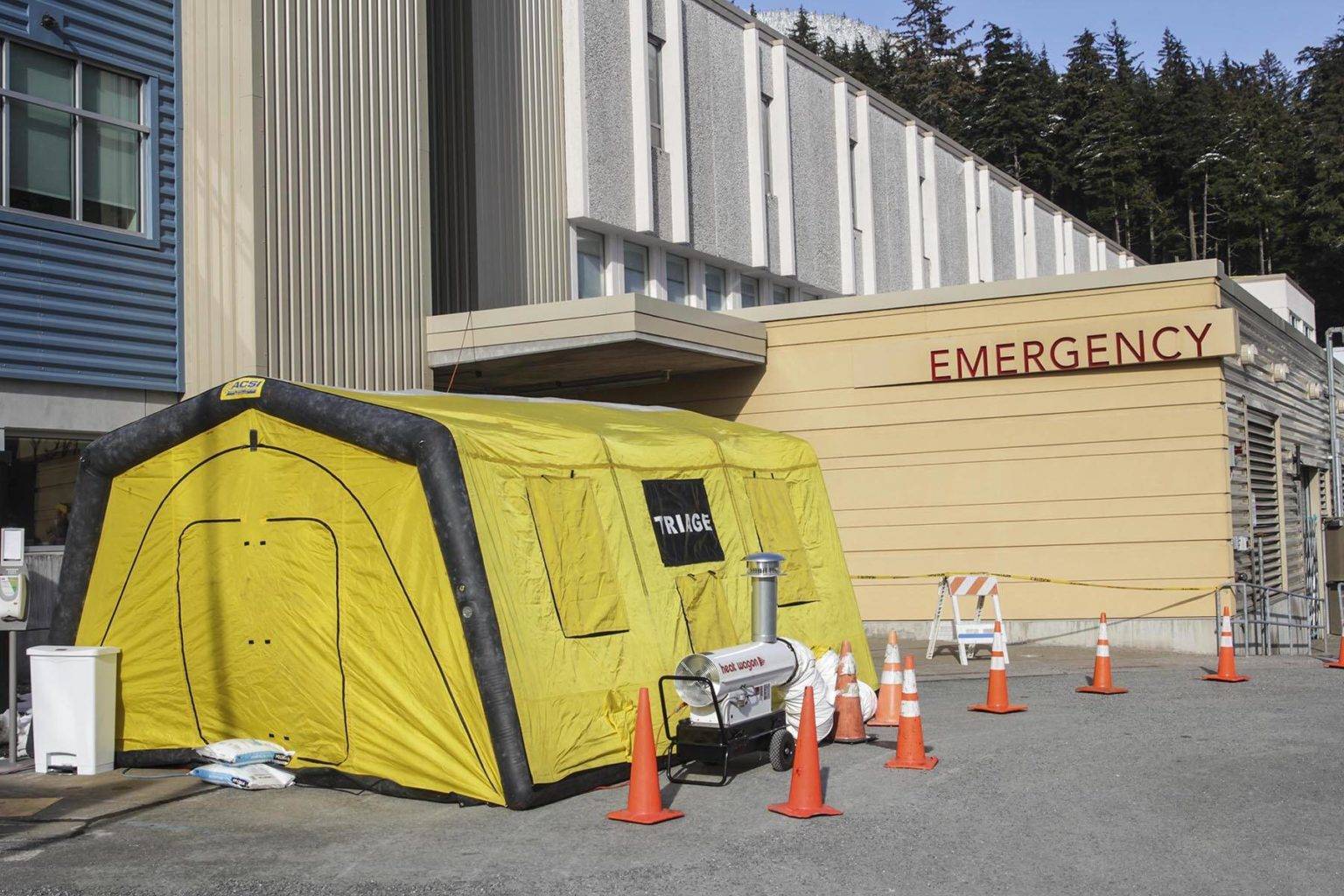If Bartlett Regional Hospital is going to be prepared to manage the coronavirus pandemic in the long run it’s going to need renovations in the near future, said CEO Chuck Bill.
The necessary renovations could cost up to $4 million, a price estimation Bill called “conservative” during a Monday city committee meeting.
The City and Borough of Juneau Public Works and Facilities Committee passed a motion Monday to draft an emergency ordinance appropriating $400,000 to BRH after speaking with Bill at a meeting.
“It’s become very clear to us that COIVD here for an extended period of time,” Bill said at the meeting. “If you look at the history of these kinds of diseases, we seem to have one every couple of years.”
In a memo to the committee, Public Works Director Katie Koester wrote the hospital is requesting $400,000 to begin planning, design and cost estimation.
BRH needs to perform upgrades to the hospital’s HVAC to increase the number of isolation rooms and improve air-handling systems throughout the facility,” the memo said. “Other improvements could include electronic schedule, telemedicine and renovations to patient intake areas.”
Juneau’s testing machine unlikely to come before December. Here’s why
According to the memo, more permanent screening facilities are needed at hospital entrances. A temporary shelter was set up to house hospital staff screening people entering the hospital for COVID-19 symptoms, but with cold weather approaching a more permanent solution will be needed, Bill said.
BRH is requesting the $400,000 for preparations come from the city’s federal COVID-19 relief money, which under current requirements needs to be spent before the end of the year. Where the rest of the $4 million needed for renovations comes from hasn’t yet been settled, said City Manager Rorie Watt.
The hospital has its own funds, and at Monday’s meeting, Bill said BRH had done well in the past fiscal year, which ended June 30. The hospital has a fund balance of roughly $65 million, Watt said, but how much the hospital should keep in its reserves is an open question.
“There’s always that ongoing discussion of what’s a healthy level of reserve for our enterprise entities,” he said.
So far, the hospital has received more in CARES Act funding than it lost from having to temporarily close down elective procedures earlier this year, Bill said at the meeting, but the hospital continues to see lost revenue because of COVID-19.
But for the city’s CARES Act money, the problem isn’t a lack of money; it’s having enough time to spend it.
Right now, state and local governments have until Dec. 30 to spend the federal funds, but needs related to the coronavirus are expected to continue, Watt said. There’s legislation in Congress to both expand the acceptable uses for CARES Act money and extend the spending deadline by another year.
But national politics are volatile, Watt said, and the Assembly will have to decide if it wants to use hospital reserves or federal relief money to pay for the renovations.
Bartlett also needs renovations to house the testing machine the city ordered and which is expected to arrive in a few months. The Assembly allocated $700,000 in CARES Act money to pay for the machine and other costs associated with its installation.
Depending on how quickly an ordinance is drafted the CBJ Assembly could vote and pass the ordinance at their next full meeting on Sept. 21, said Janet Sanbei, administration officer for the Department of Engineering and Public Works. With an emergency ordinance, much of the typical process of formal introduction and committee debate is skipped, Sanbei said, and the Assembly can introduce, discuss and vote on an ordinance in the same meeting.
“Since the CARES Act funds are required to be expended by (Dec. 31, 2020), time is of the essence,” Koester wrote in her memo to the committee.
• Contact reporter Peter Segall at psegall@juneauempire.com. Follow him on Twitter at @SegallJnoEmpire.

